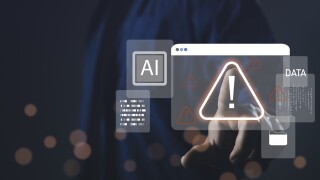Cybersecurity
This study presents a novel hybrid approach to enhance fraud detection in scanned financial documents.
AI is transforming the field of cybersecurity, offering new possibilities and challenges for both defenders and attackers, but AI also can introduce new vulnerabilities and risks and raise new ethical, legal, and social issues for cybersecurity.
The report on data from the Cybernews Business Digital Index also revealed that only 10% of top oil and gas firms passed a basic cybersecurity assessment. The rest failed.
-
More than 45% of energy companies fell victim to at least one cyberattack in 2014, a higher percentage than in any other corporate sector. With constant hacking threats, companies must develop strong cybersecurity strategies.
-
Betsy Woudenberg examined recent incidents and described how the oil and gas industry can develop the culture needed to combat cyber espionage in her SPE Digital Energy Technical Section presentation.
-
The benefits of modern industrial control systems have never been greater. A baseline system security image, as a start, allows a vessel owner or operator to understand the security risks.
Page 11 of 11






